ASE group, the leading semiconductor packaging and testing company in Taiwan, showcases its sensors and SiP platforms, which are used in smart home, smart cars and the Internet of Things, etc. Lighting is an important part of smart home, and ASE’s solutions allow users to control lighting by gestures or App. For example, ASE displays a solution of smart lighting based on low-power Bluetooth technology. Users can use iPad to control individual light bulbs or collective lighting effects according to specific light conditions. In addition to intelligent control of lighting effect, this smart lighting system can also coordinate with environmental monitoring system. When the temperature sensor, gas sensor and motion sensor detect any unusual situations, this smart lighting system will flash and alert.
Quantum-dot backlight
Japanese manufacturer GeneLite shows Mini Flip Chip for Quantum-dot TV and mobile phone backlight. This thin and bendable chip features substantial reduction in power consumption, thus can be used for curved TV or mobile phones with curved screen. In addition, GeneLite also shows the quantum-dot wide color gamut technology, which increases the gamut of LCD TV using QD film up to NTSC 118%, and makes the colors more vivid and accurate.
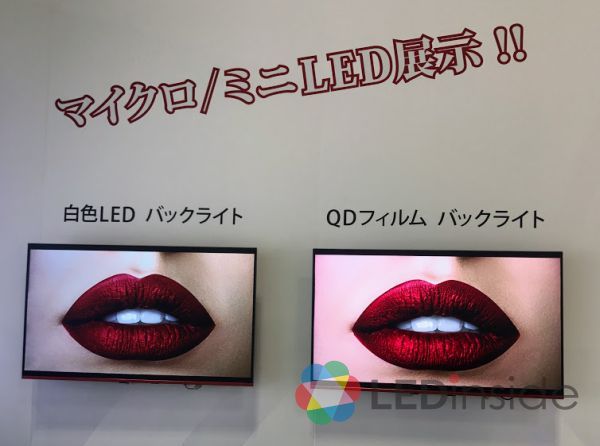 |
|
Compared with traditional white LED backlight, quantum-dot backlight offers more true-to-life color performance (Image: LEDinside)
|
Niche LED applications
As for automotive lightweight technology, LEDinside notices a LED manufacturer, Luci, among a group of car makers. As an old Japanese lighting company, Luci offers interior/architectural lighting products and ODMs, etc. This time, instead of general lighting products, Luci shows LED inspection lamps for color correction/inspection, quality control in factory, etc. Luci says that Japan will gradually substitute incandescent light bulbs and fluorescent lamps with LED light bulbs by 2020, which is a good business opportunity for Luci. The D50 and D65 light sources (switchable) are used for the inspection lamp in this demonstration. This product is more similar to the sunlight with a Ra96 color rendering performance, which is superior to Ra90 of normal lamps. Current clients of this inspection lamp come from fields like printing, cosmetics, fiber, food, etc. It is also adopted by autonomous car manufacturers to inspect car colors. As the market for autonomous cars continues to grow, Luci shows ambition to take this business opportunity, and this is why Luci set up its booth in the automotive lightweight technology area to differentiate itself from other lighting factories.
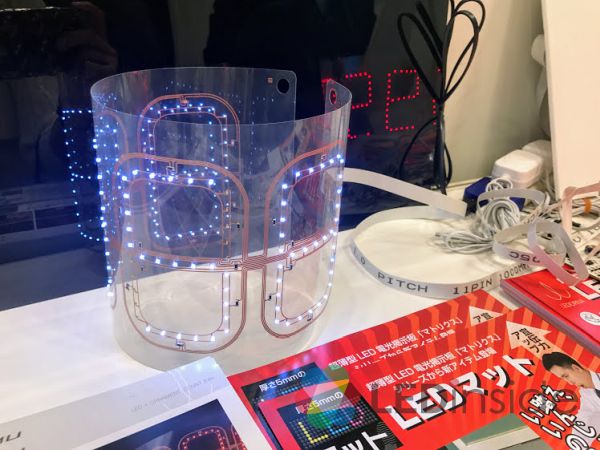 |
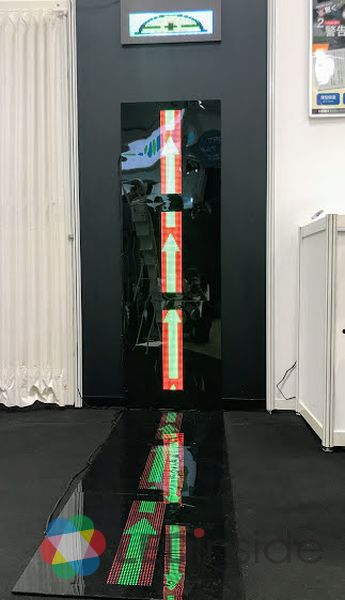 |
|
(Images: LEDinside) |
Another Japanese maker, Locrea, presents an ultra-thin LED sign. The signs are printed on film and then combined with LED lights, which have wide applications such as direction signs, interior decoration, warning signs, etc. The company also shows a carpet-like full-color LED sign, only 5mm thick, but it can carry a weight of about 300kg, even people can step on it. As for the operation, users can edit the text on display through Bluetooth of mobile phone.
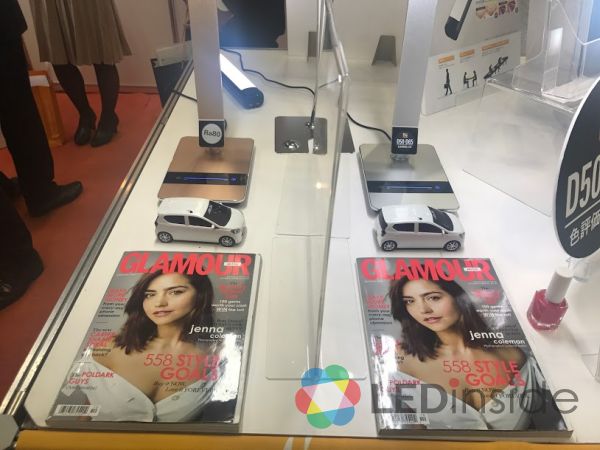 |
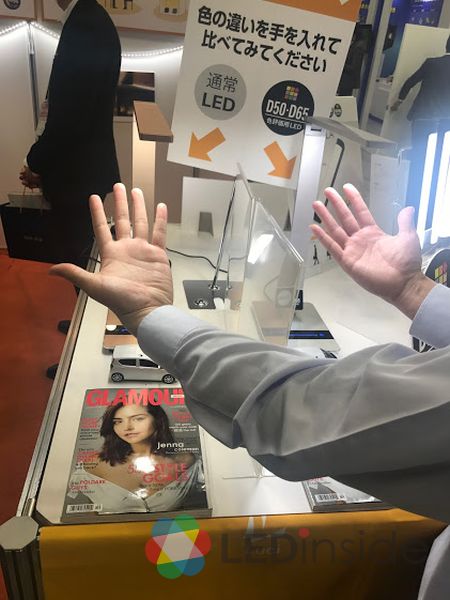 |
|
On-site demonstration of normal LED and LED with D50/D65 light sources. The light on the right appears to be accurate and bright (Image: LEDinside)
|
Wearable devices
Smart clothing technology has attracted much attention in NEPCON JAPAN. A Japanese soft board manufacturers showcases its ultra-thin soft board which can be used in smart clothes. The board is 300 micrometer wide and 55 micrometer thick, on which 6 cables and LED can be configured.
Tohoku Pioneer Corporation, an OLED company from Japan's Pioneer Group, features a transparent, ultra-thin, bendable and high-brightness OLED panel that can be used in smartwatches, AR smart glasses and Bluetooth speakers. With its experience in the mobile phones production and automotive OLED panels, the company hopes to enter the wearable device market with high quality and reliability products. According to Tohoku Pioneer, its water-oxygen blocking film packaging technology can make panel thinner, which may help develop 0.1mm PMOLED panel, the thinnest one in industry. In addition, through coating and optical design, there will not be burn-in even if the transparent OLED panel is off.
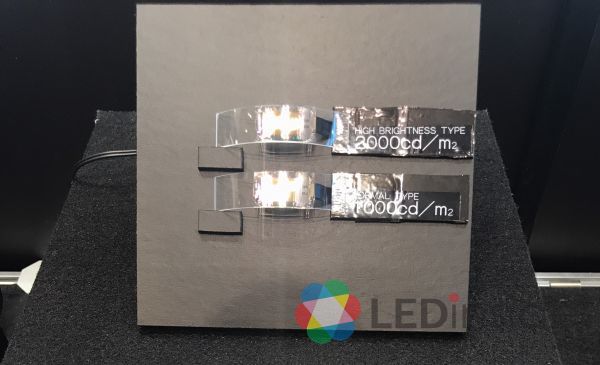 |
|
The bendable and high-brightness OLED panel of Pioneer (Image: LEDinside)
|
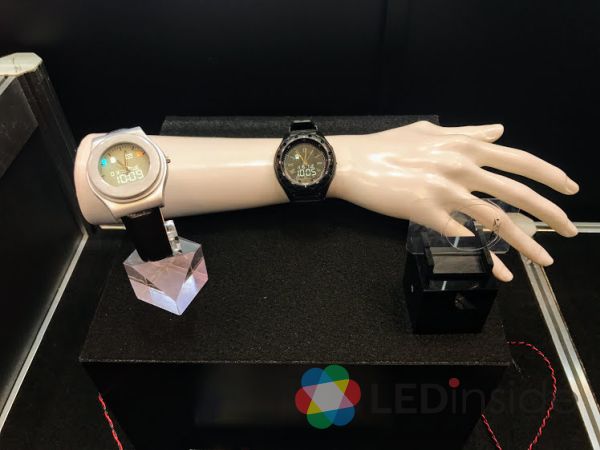 |
|
The transparent OLED panel used in watches (Image: LEDinside) |












